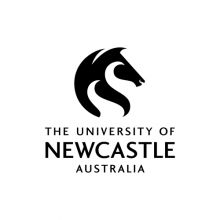Long-serving University of Newcastle chancellor Paul Jeans will remain in the position, after former Australian deputy prime minister Mark Vaile relinquished an appointment to the role following uproar over his coal industry links.
Mr Jeans, whose second four-year appointment concludes at the end of June, said he was staying put “to ensure continuity and to maintain the strong momentum in the execution of our strategic plan”.
The university's council decided to reappoint him at a 22 June meeting, a day after it was revealed that Mr Vaile had decided not to take up the position. The university was unable to say how much longer Mr Jeans would remain in the top job.
Mr Vaile’s appointment had been announced a fortnight earlier, with deputy chancellor Michelle McPherson lauding his “exemplary” attributes and “strong connections to the region”.
“Council members voted unanimously for Mr Vaile – a clear reflection of his credentials to be head of our university as well as a vote of confidence in his commitment to this region,” Ms McPherson said. “[His] experience with our international partners right through to our local communities will be invaluable for our future both in our regions and on the world stage.”
Mr Vaile chairs Whitehaven, which describes itself as the “leading Australian producer of premium-quality coal”. Critics lambasted the appointment as tone-deaf in a region seeking a way forward from its coal-based industrial roots.
Staff-elected council member Jennifer Martin, Newcastle’s chair of clinical pharmacology, resigned in protest. “Sometimes one needs to stand for the future community,” she tweeted.
Sixteen “significant donors” announced their intention to blacklist the university in a full-page advertisement in a local newspaper. “We, and many like-minded others, will not support a university who would choose as their leader someone who is determined to build new coal mines when most of the world is determined to reduce fossil fuel use,” it proclaimed.
“Mr Vaile has played an important role in Australian politics and business, but that role has included questioning the science of climate change and its links to drought.”
Council members had signalled as late as 18 June that they would not back down, after discussing the controversy at a scheduled meeting. In a statement posted afterwards, Mr Jeans said Mr Vaile had been the best candidate in a field of 36.
“There are 16 member positions on council,” he said. “We have long benefited from a diverse range of views. We have robust debates, consider the views of our stakeholders, discuss ideas and, as a group, work to find consensus to act in the best interests of our university.”
He said Mr Vaile had publicly reinforced his commitment to Newcastle’s Looking Ahead strategy, including a goal to be carbon neutral by 2025.
Australian Greens education spokeswoman Mehreen Faruqi described Mr Vaile’s subsequent withdrawal as a “huge win” for staff and students. “Coal bosses have no place in university leadership,” she said.
“We are in the middle of a climate emergency, and communities are demanding leadership that will tackle this crisis with the urgency it demands. We need to build and nurture universities that are democratic, equitable and sustainable.”
Register to continue
Why register?
- Registration is free and only takes a moment
- Once registered, you can read 3 articles a month
- Sign up for our newsletter
Subscribe
Or subscribe for unlimited access to:
- Unlimited access to news, views, insights & reviews
- Digital editions
- Digital access to THE’s university and college rankings analysis
Already registered or a current subscriber? Login









